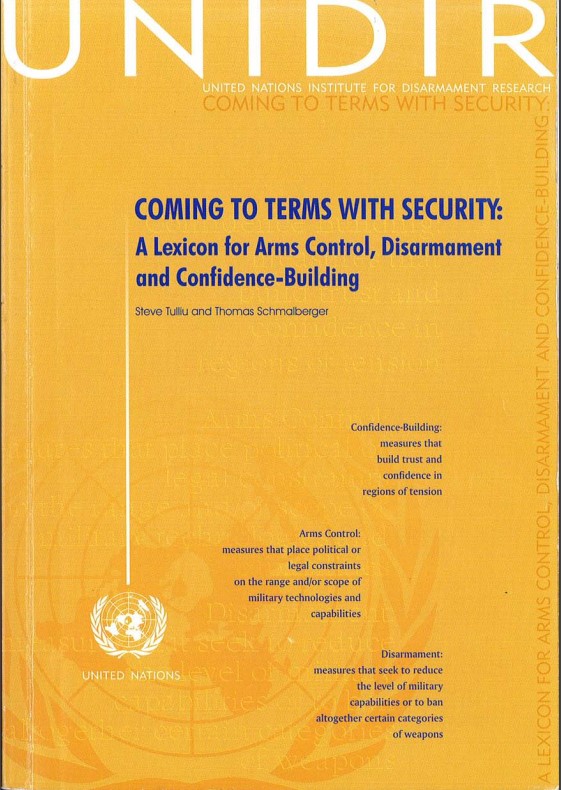Every specialized field of knowledge possesses its own unique complex of symbols or language. This allows it to delineate its boundaries and address its subject matter in a manner that is intelligible and economical to its members. Language names things, tells what is significant about them, puts them in relation with one another and conveys them to others. In short, language fulfils labelling, conceptual and communicative functions that are indivisible from the specialized field of knowledge and whose usage is constitutive of participation in the specialized field of knowledge.
Although the language of arms control and disarmament is comparatively recent, over the years it has grown abundant and complex to the point that charting one's way through it has become a serious challenge for novice and expert alike. Intended as a reference book for officials involved in arms control and disarmament activities, as well as interested students, researchers and journalists, UNIDIR's Coming to Terms with Security: A Lexicon for Arms Control, Disarmament and Confidence Building is a compilation of the main legal, political and technological arms control and disarmament terms that have emerged over the last decades. Comprising explanations for over 380 terms, placed in their historical context, the lexicon addresses subjects such as conceptions of arms control and disarmament, conventional weapons, chemical, biological and nuclear weapons, delivery systems, CSBMs, treaty negotiations and verification. Expressly conceived with utmost flexibility of use in mind, the lexicon may be consulted either as a glossary for quick reference, chapter-by chapter for grater overview of an individual topic, or in its entirety as a reference manual. A detailed table of contents and a full index at the back of the book, further enhance its facility of use.
Citation: Steve Tulliu and Thomas Schmalberger (2003). "Coming to Terms with Security: A Lexicon for Arms Control, Disarmament and Confidence-Building", UNIDIR, Geneva.
